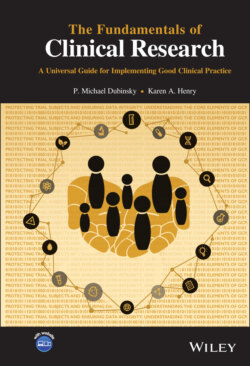Читать книгу The Fundamentals of Clinical Research - P. Michael Dubinsky - Страница 93
7.2.1.4 The IRB/IEC
ОглавлениеThe ethics committee, which is formally known as Independent Ethics Committee (IEC) or IRB, is a body of individuals that ensures the protection of human research subjects (the term “IRB” is used in the United States regulations). By definition, an Independent Ethics Committee (IEC) is:
An independent body (a review board or a committee, institutional, regional, national, or supranational), constituted of medical/scientific professionals and nonmedical/nonscientific members, whose responsibility it is to ensure the protection of the rights, safety, and well‐being of human subjects involved in a trial and to provide public assurance of that protection, by, among other things, reviewing and approving/providing favorable opinion on the trial protocol, the suitability of the investigator(s), facilities, and the methods and material to be used in obtaining and documenting informed consent of the trial subject. (ICH E6(R2) 1.27)
An IRB is:
An independent body constituted of medical, scientific, and nonscientific members, whose responsibility it is to ensure the protection of the rights, safety, and well‐being of human subjects involved in a trial by, among other things, reviewing, approving, and providing continuing review of trials, of protocols and amendments, and of the methods and material to be used in obtaining and documenting informed consent of the trial subjects. (ICH E6(R2) 1.57)
An ethics committee that is responsible for the physical and psychological protection of human research subjects is known as an IRB or IEC, or ethical review board, depending on the geographical region or country, or institution. An institution where a trial is taking place, for example a hospital or academic center, may have a department dedicated to performing IRB activities for all clinical research studies that are executed at that institution. There are also IRBs that review a given trial for all the clinical sites participating in the given study and these IRBs are known as central IRBs. Additionally, a particular ethics committee may review research protocols for all studies conducted within its geographic region.
For all types of IRBs/IECs, the composition and functions remain the same per GCP (ICH E6(R2) 3). An IRB/IEC’s review is independent of the influence of the investigator, sponsor or their representatives; however, for a given trial, some IRB/IECs may take into consideration the opinions of other IRB/IECs that are reviewing the same trial at other participating sites.
